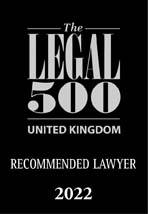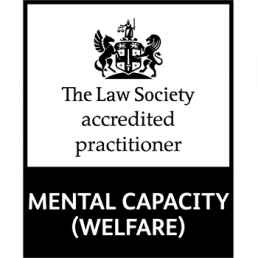Christopher Rogers

Christopher Rogers
Caseworker
Christopher studied Ancient and Modern History at Keble College Oxford University before completing the Common Professional Exam and the Bar Vocational Course. He was called to the Bar by the Middle Temple and lectured for many years at The University of Northumbria in Newcastle upon Tyne. He holds a Master of Laws degree in Canon Law from The University of Cardiff. He has taught on a broad range of courses both academic, undergraduate and postgraduate, and professional courses such as the BPTC and Professional Skills Courses for trainee solicitors. He was the Programme Leader for the LLB incorporating the Bar Vocational. He completed his LLM dissertation on the canonical and civil regulation of sexuality and has contributed to the Ecclesiastical Law Journal. He also wrote regularly for the Legal Executive Journal and contributed towards Public Law texts for students. He retains a great interest in History of many different periods, enjoys reading literature, and takes a keen interest in Church Affairs.
Since retiring from academia Christopher has moved into legal practice and now specialises in mental health law representing patients liable to be detained in hospital under civil and restricted sections of the Mental Health Act 1983.
Christopher is a keen advocate for patient’s rights and is committed to ensuring that the rights of vulnerable persons are protected.
Conference Papers and Publications:
Art and literature in the Trial of Oscar Wilde, SLSA Conference, Sussex University, Brighton, 2012
Rogers, Christopher, Mercer, Sarah, and Sandford-Couch, Clare (2011) Teaching dissent in the Law School: have students learned to disagree? Liverpool Law Review, 32(2) pp.135-148
Trials of Dissenters: Group Presentations as the primary teaching method in LLB Options, ALT, Clare College, Cambridge, 2010
Teaching Dissent in the Law School, SLS Conference, Keele University, 2009
Contributor to Public Law chapters in Smith R., Murrell, L., and Rook, D., Conversion Course Companion for Law: Cases and Principles for the CPE/GDL (London, 2008)
Rhiannon Jones
Rhiannon undertakes Court of Protection and Community Care work and is based in Cornwall.
Rhiannon is experienced in the Court of Protection with Health and Welfare cases including acting for the Protected party and other family members. Other work can include s21A challenges to standard authorisations (DOLS) (Welfare) cases. She often takes instructions from the Official Solicitor. Rhiannon is an Accredited Legal Representative (ALR) with the Law Society.
Community Care cases include obtaining assessments of Care and Support needs, assessments for Carers, the provision of services, challenges to Care and Support Plans and Judicial Reviews in relation to the provision of services and accommodation.
Prior to training as a solicitor Rhiannon worked for the Citizens Advice Bureau and specialised in debt advice including housing and welfare benefits. She is dedicated to publicly funded work and is passionate about ensuring the most vulnerable in society are able to access and obtain high quality legal advice and representation.
In 2020 Rhiannon Jones was appointed as a Fee paid Tribunal Judge of the First Tier Tribunal Social Security Chamber.
"Rhiannon Jones is always easy to work with, helps cut through any legal jargon, and is very friendly and approachable whilst being able to fight on behalf of the protected party. Rhiannon is often on hand to talk matters through and nothing ever seems too much trouble for her"
– Legal 500 2021 Testimonial
'Rhiannon is extremely personable, which means that she can deal with all manner of clients with a range of difficulties. She is able to adapt her style and approach to meet each client's individual needs so that they feel supported and listed to. Rhiannon is one of the most experienced CoP advocates in the country and renowned for her skill in this particularly complex area of law."
– Legal 500 2022 Testimonial
Notable Cases:
NP, Re [2020] EWCOP 44
The case concerned NP, a 69-year-old man from Cornwall who has been married for 35 years to BKP. In December 2018 NP collapsed at home and had to be hospitalised. NP was diagnosed of neurological sequelae of herpesviral encephalitis and personality change due to known psychological condition. In February 2019 NP was transferred to the X neuro-rehabilitation unit where he currently resides. In September 2019 BKP was told by the X neuro-rehabilitation unit that it was considered that NP’s recovery had ‘plateaued’ and was not going to be receiving further physiotherapy or occupational therapy. He was therefore medically fit for discharge. The issue arose as to where NP should be discharged, the Council believing his needs would be best met in a residential care home and BKP wishing him to return home with a package of care. After careful consideration of the evidence the Judge agreed with BKP and the Official Solicitor, acting as litigation friend to NP, and ordered that NP should return home with a package of care on a trial basis. Included in his reasoning the Judge considered NP’s right to live independently and be included in the community, as set out in Article 19 to the UN Convention on the Rights of Persons with Disabilities 2006 (“CRPD”), which the UK ratified in 2009.
Legal 500 2021 Testimonial:
‘Rhiannon Jones is always easy to work with, helps cut through any legal jargon, and is very friendly and approachable whilst being able to fight on behalf of the protected party. Rhiannon is often on hand to talk matters through and nothing ever seems too much trouble for her‘
Awards:
2016: Shortlisted in the Legal Aid Lawyer of the Year Awards (in the ‘Newcomer’ category)
2016: Highly Commended in the Junior Lawyer category at the Law Society’s Excellence Awards.
Angela Smith
Angela specialises in Mental Health law and Mental Capacity law and routinely provides advice in respect of the complex overlap between these two areas of law.
Angela has extensive experience in Court of Protection matters relating to health and welfare disputes over residence, care and contact and in s.21A applications challenging authorisations granted under the deprivation of liberty safeguards regime. She primarily represents the protected party (‘P’) in welfare cases, most frequently instructed on P’s behalf by the Official Solicitor, but also represents relatives involved in disputes over their loved ones’ care and residence or disagreements about their level of contact with their relatives.
Angela also has wide-ranging experience in representing and advising both forensic and non-forensic patients and their Nearest Relatives in applications to the First-tier Tribunal (Mental Health) and appeals to the Upper Tribunal.
Angela is a member of the Law Society’s Mental Capacity (Welfare) Accreditation Scheme and has fulfilled the additional quality standards for approval under that scheme as an Accredited Legal Representative (‘ALR’). Angela is regularly appointed as an ALR by the court in appropriate cases as an alternative to a litigation friend.
Angela is also a member of the Law Society’s Mental Health Accreditation Scheme.
"Angela Smith is an outstanding solicitor. Her approach is thorough and person centred, she looks at every angle that could be explored to enable the best result for P. Every case is individual. Angela's knowledge of the MCA is incredible."
– Legal 500 2022 Testimonial
Notable Cases:
Angela has been involved in a range of cases before the Court of Protection under s.16 and s.21A of the Mental Capacity Act 2005 as well as in judicial review proceedings in the Administrative Court.
LBX v K, L and M (2013) EWHC 3230 (Fam), (2013) MHLO 148:
Angela acted for a family member of ‘P’ in respect of long-running proceedings before the Court of Protection. The case dealt with a careful break down of the core components of relevant and irrelevant information to be provided to ‘P’ in the determination of capacity on residence and contact. The final order dealt with matters under the inherent jurisdiction.
AB v HT & Ors [2018] EWCOP 2:
Acting for a family member (P’s aunt) in these complex and difficult proceedings, Mr Justice Baker had to determine whether:
- P had historical capacity to marry and have sexual relations when, in August 2013, she had undergone an Islamic marriage with MS,
- P has capacity to make decisions as to her care, residence and contact with others and also to marry;
- If P does lack capacity, should the court make best interests decisions in light of its findings following a five day fact-finding hearing?
Ruling in our client’s favour, the court determined P should continue to have unrestricted contact her aunt, but P’s contact with her father should be limited and no direct or indirect contact was to take place between P and her Islamic husband. The court declined at that stage to make final declarations as to P’s capacity or to make best interests decisions in terms of P’s care and residence as P remained detained under section 3 of the Mental Health Act 1983.
Antony Stewart

Antony Stewart
Consultant Solicitor
Antony qualified as a General Nurse in 1986. His NHS nursing career progressed to him moving into the management of Community and Mental Health Services at a senior level.
After leaving the NHS he became an Associate Hospital Manager, chairing and sitting as a panel member on Hospital Manager Hearings. This gave him considerable understanding of the impact that compulsory detention under the Mental Health Act has on a person’s life and on the lives of those that surround them.
Motivated by personal stories, Antony trained to become a Solicitor with the aim of practising mental health law and qualifying in 2009. Antony represents a cross section of detained and community patients, both civil and restricted. His cross practise in criminal law equipping him with specialist knowledge to represent forensic patients subject to special restrictions and those transferred from prison to hospitals. He became a Member of the Law Society’s Mental Health Accreditation Scheme in 2011 and is a specialist solicitor representing the rights of vulnerable individuals.
Antony provides a full range of services to include advising and assisting at CPA/117 meetings, representing clients at Hospital Managers Hearings and First-tier Tribunals; and representing Nearest Relatives in displacement proceedings in the County Court.
Fatima Boujettif

Fatima Boujettif
Partner

Fatima qualified as a solicitor in 2002 and is a member of the Law Society’s Mental Health Accreditation Scheme.
She has been a Criminal Duty Solicitor since 2005 and represents clients at Police Stations and Courts.
Fatima’s legal practice focuses on the representation of clients detained under section 2, section 3 of the Mental Health Act and client’s receiving treatment under a Community Treatment Order.
She is passionate about protecting the rights of vulnerable people and committed to ensuring clients receive support and understanding in dealing with their mental health matters.
Fatima has broad experience in representing nearest relatives in displacement proceedings in the County Court.
Andrea Spyrou
Andrea is a leading solicitor within the field of forensic mental health law and specialises in the representation of clients detained in high and medium secure hospitals. She conducts her own advocacy before First-tier Tribunal hearings but also works closely with specialist counsel on legally complex hearings lasting many days.
Andrea has acted on behalf of a number of high profile offenders assessed as high risk with complex needs and has a keen interest in hospital prison transfer patients and working with them and their clinical teams to ensure their successful rehabilitation and release. Andrea’s work in the field of mental health law was recognised by the Legal Aid Practitioners Group when in 2010 she was a finalist for the Mental Health Lawyer of the Year Award. Andrea was also listed as a Rising Star in Super Lawyers 2013.
Andrea also has experience in Court of Protection deprivation of liberty cases and is well placed to deal with the interface between the mental health law and mental capacity law and to advise on complex issues that arise.
For many years Andrea has acted as a category supervisor training trainees and paralegals supporting them to qualify as specialist solicitors and to achieve Law Society panel accreditation. Andrea also provides training on behalf of the Mental Health Lawyer’s Association in delivering the Law Society’s Mental Health Accreditation course.
Andrea has also previously sat as a Hospital Manager for the East London NHS Foundation Trust and chaired hearings.
Notable Cases:
MM v Nottinghamshire Healthcare NHS Trust [2013] UKUT 107 (AAC). This case related to the service of an independent report. The Upper Tribunal concluded that the First-tier Tribunal’s duty was to decide on the evidence available rather than to speculate on possible explanations why an independent report was not served.
May 2020 – Andrea successfully appealed the decision of a single First-tier Tribunal Judge to proceed with a hearing whereby the patient was unpresented. Andrea successful argued the Judge erred in law by failing to consider whether the patient had capacity to litigate in person.
Lara Patrick

Lara Patrick
Partner

Lara qualified as a solicitor in 2005 and is a long standing member of the Law Society’s Mental Health Accreditation Scheme. In 2007 Lara was made a partner of the firm she qualified with, before moving on to Head of Department at the largest provider of publicly funded services.
In 2012, Lara was appointed by the Law Society as an Assessor for candidates applying to become members of the Law Society’s Mental Health Accreditation Scheme.
Lara is a specialist mental health practitioner, with extensive experience advising and representing a cross section of civil and restricted clients detained under the Mental Health Act, from those detained in conditions of maximum security, through to general acute settings and clients receiving treatment under Community Treatment Orders. She has successfully appealed decisions of the First-tier Tribunal (Mental Health), has represented client’s in judicial review proceedings, and in nearest relative displacement proceedings before the County Court. More recently, Lara has represented in Section 21A Court of Protection proceedings, challenging authorisations granted under the deprivation of liberty safeguards regime.
Lara is dedicated to publically funded work and representing those most vulnerable in society, with a particular interest in representing conditionally discharged patients seeking an absolute discharge.
In recognition of her work in this area of law, Lara was listed as a Rising Star in Super Lawyers 2013.
As a founding partner, Lara is appointed as the firm’s Compliance Officer for Finance and Administration.
Lara is a trust appointed school governor, she has been closely involved in a recent Ofsted inspection and the school conversion to academy status.
Kate Luscombe
Kate is a longstanding member of the Law Society’s Mental Health Accreditation Scheme, and a member of the Mental Health Lawyers Association. Kate is a peer reviewer for the Ministry of Justice and is committed to ensuring strict quality standards are met by mental health practitioners.
Establishing the Court of Protection team in 2014, Kate Luscombe has an excellent knowledge of Mental Health and Mental Capacity law and social welfare issues. Kate is a confident litigator who combines a realistic assessment of the merits of a case with a strategic application of the law with an empathetic approach to dealing with vulnerable clients. She is a recommended Court of Protection lawyer in the 2021 edition of the Legal 500.
Kate provides approved clinician training to NHS Trusts and training on behalf of the Mental Health Lawyers Association to those seeking to gain panel accreditation. She has been asked to comment by legal publishers on reported cases and has written articles for national newspapers and broadcast on national television on mental health issues.
Areas of expertise include advising clients who are deprived of their liberty and the human rights issues that flow from this in particular Article 5 and 8 of the ECHR.
'Kate Luscombe is committed, passionate, yet insightful'.
— Legal 500 2021 Testimonial
"Kate Luscombe is exceptionally dedicated, with an excellent knowledge of the law and a willingness to think outside of the box"
— Legal 500 2022 Testimonial
Notable Cases:
AH v West London Mental Health Trust [2011] UKUT 74 (AAC)
Kate acted for the appellant in this case before the Upper Tribunal. The appeal determined whether the First-tier Tribunal made an error of law in refusing a mental health patient’s application for the First-tier Tribunal to sit in public establishing the threshold test namely that Article 6 of the European Convention on Human Rights (reinforced by Article 13 Convention on the Rights of Persons with Disabilities) requires that a patient should have the same or substantially equivalent right of access to a public hearing as a non-disabled person who has been deprived of his liberty; such a right can only be denied a patient if enabling that right imposes a truly disproportionate burden on the state.
JD v West London Mental Health NHS Trust [2016] UKUT 496 (AAC)
Kate acted for the appellant in relation to the European Convention on Human Rights and First-tier Tribunal criteria. “The patient in this case was held in exceptional conditions of exclusion and restraint. The Secretary of State referred the patient’s case to the First-tier Tribunal and his detention was upheld. Human rights arguments were advanced on behalf of the appellant. Permission to appeal to the Upper Tribunal was given identifying the issue: ‘to what extent should the circumstances of a patient’s detention, and any possible breach of the European Convention as a result thereof, have any bearing on the First-tier Tribunal’s exercise of its discharge powers. Following from that, if the Tribunal is satisfied that the circumstances of a patient’s detention are a breach of the European Convention on Human Rights, how should that be reflected in the decisions that the First-tier Tribunal can lawfully make?’
Djaba v West London Mental Health NHS Trust [2017] EWCA Civ 436
Acting for the appellant, this case concerned the narrow issue of whether the statutory tests within ss. 72, 73 and 145 of the Mental Health Act 1983 require a ‘proportionality assessment’ to be conducted, pursuant to articles 5 and/or 8 of the European Convention of Human Rights and Fundamental Freedoms and the Human Rights Act 1998, taking into account the conditions of the appellant’s detention. … The position established by these cases is that, where the question whether the detention complies with the European Convention on Human Rights is not expressly within the powers of the tribunals but can be heard in other proceedings, section 3 of the Human Rights Act 1998 does not require the powers of the tribunals to be interpreted by reference to the Convention to give them the powers to consider Convention-compliance as well. In this case, the appellant must apply for judicial review to the Administrative Court if he considers that the conditions of his detention are disproportionate and do not comply with the Convention.
AR v West London NHS Trust and the Secretary of State for Justice [2020] UKUT 273 (AAC)
Acting for the appellant, this Upper Tribunal appeal concerned a request by a patient, AR for a public hearing and capacity.
In deciding AR’s appeal, Judge Jacobs held that the Tribunal was right to apply the MCA 2005, but applying Section 2(1) of the MCA misdirected itself and fell into error.
The four factors set out in AH which must be considered in any application for a public hearing under Tribunal rule 38 are merely factors relevant to the ultimate test of whether a public hearing is in the interests of justice. The first factor (“whether it is consistent with the subjective and informed wishes of the patient (assuming that he is competent to make an informed choice”) does not mean that a patient must have capacity in order to be allowed a public hearing, although the wisdom of the patient’s wishes is relevant to the application of rule 38. (2) The relevant “matter” for the purposes of assessing capacity is not merely the public hearing application but conduct of the proceedings generally, although lack of capacity in relation to the former entails lack of capacity in relation to the latter. (3) The First-tier Tribunal had restricted its capacity assessment to the decision to apply for a public hearing, and had concluded that “without being able to make an informed choice [the patient] cannot have a public hearing”, so had erred in relation to both points.
Awards
2011: Shortlisted in the Mental Health Lawyer of the Year Award – Legal Aid Practitioners Group








